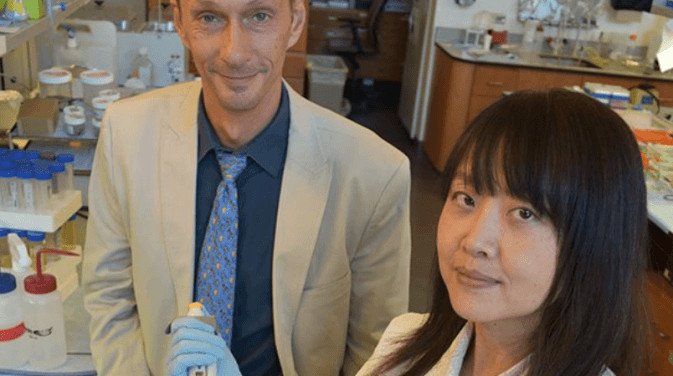Scientists at The University of Texas Health Science Center at Houston (UTHealth) report that fat cells support the progression of prostate cancer and could be a key target in new treatments. Findings of their preclinical study appeared in the journal Oncogene.
The prostate is a male reproductive organ and prostate cancer develops mainly in older men and in African-American men.
“Our results demonstrate that interaction with cells of fat tissue makes cancer cells more migratory and more resistant to chemotherapy,” said Mikhail Kolonin, PhD, the study’s senior author and director of the Center for Metabolic and Degenerative Diseases at McGovern Medical School at UTHealth.
Kolonin’s research focused on stem cells of fat tissue (adipose stromal cells). Previously his group discovered that these cells support tumor-nourishing blood vessels. Their new study investigated how prostate tumors use adipose stromal cells to invade surrounding tissues and fight off popular prostate cancer medications such as docetaxel, cabazitaxel, and cisplatin.
Kolonin and colleagues conducted experiments with cultured human cells and with mouse models of obesity-associated prostate cancer. They used an experimental drug called D-CAN that they had previously developed that kills adipose stromal cells. “The prostate cancer was significantly less resistant to chemotherapy upon D-CAN treatment,” Kolonin said.
“Our data, demonstrating that adipose stromal cell depletion enhances chemotherapy at a non-toxic dose in mouse models, may pave the way to combination therapies with lower side effects and improved anti-cancer efficacy,” the researchers report.
About 6 in 10 cases of prostate cancer are diagnosed in men aged 65 or older, and the disease is rare before age 40, according to the American Cancer Society. The average age at the time of diagnosis is 66.
Kolonin’s collaborators include first author Fei Su, PhD, of UTHealth; and Songyeon Ahn; Achinto Saha, PhD; and John DiGiovanni, PhD, of the Dell Pediatric Research Institute at the University of Texas at Austin.
The study, titled “Adipose stromal cell targeting suppresses prostate cancer epithelial mesenchymal transition and chemoresistance,” was supported by the National Institutes of Health grants (R21 CA216745, R01 CA196259) and the Harry E. Bovay, Jr. Foundation.
Kolonin’s laboratory is in the Brown Foundation Institute of Molecular Medicine for the Prevention of Human Diseases at UTHealth.
Kolonin is the Harry E. Bovay, Jr. Distinguished University Chair in Metabolic Disease Research at McGovern Medical School. He is also on the faculty of The University of Texas MD Anderson Cancer Center UTHealth Graduate School of Biomedical Sciences.

